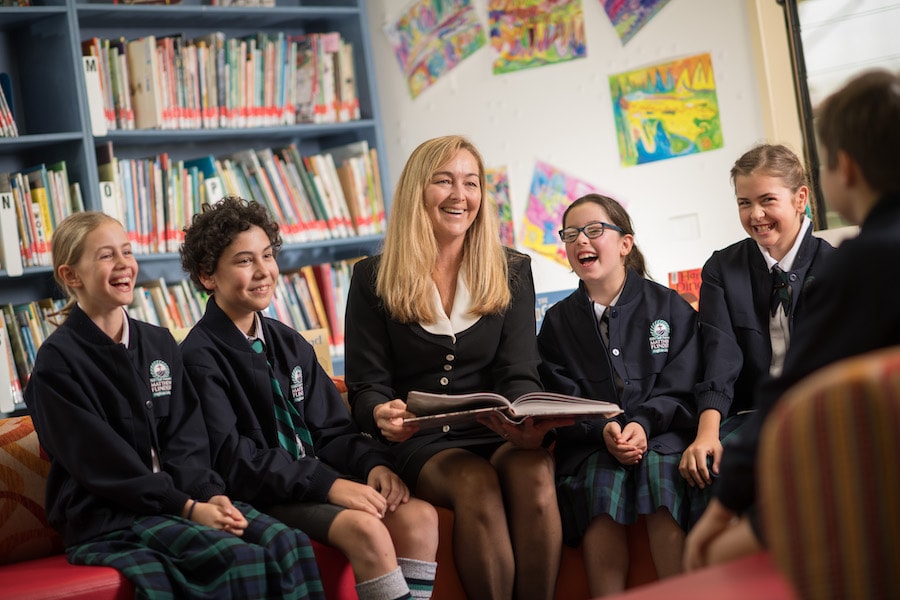Research in both education and health reveals that giving students a voice and engaging students as partners in learning benefits them by fostering development of skills, improvement in competence, while simultaneously improving outcomes for their peers and the entire school. Various forms of student engagement such as peer support, peer mentoring, student voice and service-learning partnerships provide students with a sense of safety, belonging, and efficacy; strengthened community connections; and improved achievement. (Toshalis E, Nakkula MJ. Motivation, Engagement, and Student Voice. The Students at the Center Series, 2012)
Peer teaching and peer support are not new concepts. They can be traced back to Aristotle’s use of archons, or student leaders, and to the letters of Seneca the Younger which explored human character and principle. These ideas were first organised as a theory by Scotsman, Andrew Bell, in 1795 and later implemented into French and English schools in the 19th century.
Today, peer teaching and peer support programs are used widely across schools to increase connections between students through vertical groupings. This allows students to form relationships as well as develop empathy and a sense of responsibility for students they might not typically engage with. While working within these structured groups, older students lead younger students through activities that explore social and emotional skills focusing on growth mindset, resilience, values and relationships. The structure and content combined seek to build protective factors such as sense of self, sense of possibility, connectedness and resilience, as well as establish a shared language across the school community (Paul Bullen, 2009).
The benefits of a peer program are widely recognised and were adopted by Flinders over a decade ago. After a few years trialling peer programs, John Madden (Flinders Year Level Co-ordinator - Year 9) and a team of passionate staff developed the Flinders’ Friends program, which was implemented in 2007. It is a school-based, student-led, multi-age program which provides a fun and engaging environment for students to learn social skills and build relationships, through play and traditional games. Flinders’ Friends is a student-centred approach to engaging students in appropriate ways of playing and mixing with others. It provides students from different classes, ages and social groups an opportunity to get to know and play with a wider range of their peers, whilst enhancing their social and emotional wellbeing.
The focus on play is two-fold. Global studies, across generations, have confirmed children’s play has been declining, across all age groups, for decades. The reasons for this reduction in play include the increased use of electronic devices, hectic work schedules and children’s extra-curricular activities. To maximise children’s play, play environments should include spaces for thinking, spaces for doing, spaces for being and spaces for feeling. (Brendon Hyndman, Senior Lecturer and Course Director, Charles Sturt University, 2015) The Flinders’ Friends program aims to provide opportunities for students to engage in these play environments whilst learning a range of traditional indoor games (jacks, chess, cards, dominoes, bean-bag toss) and outdoor games (skipping, French cricket, stuck in the mud, elastics, octopus tag) throughout the six sessions.
In 2019, the Flinders’ Friends sessions will run during Lesson 7 on a Monday in Weeks 3, 4, 5, 6, 7 and 9 of Term 3. Year 6 student teams will teach the program to multi-age groups of Years 2, 3, 4 and 5 students under the supervision of a teacher. Prior to Flinders’ Friends commencing, the Year 6 students undertake training by class teachers to familiarise them with the content of the program, which focuses on social skills, with an emphasis on playing fair, being a good sport, playing by the rules and being good role models for one another. This opportunity also supports the development of the Year 6 students’ leadership skills and builds their relationship with students across the school.
Placing students at the centre of their learning, we empower them with practical skills and strategies to positively navigate life and relationships. (Peer Support Australia, 2019). The Flinders’ Friends program is one of many initiatives at Flinders that help build and maintain relationships and a positive school culture. By giving students a voice and engaging the Year 6 students as partners in learning, we empower them to support each other and to contribute positively to our school and community.
Ingrid Clarke | Head of Senior Primary

